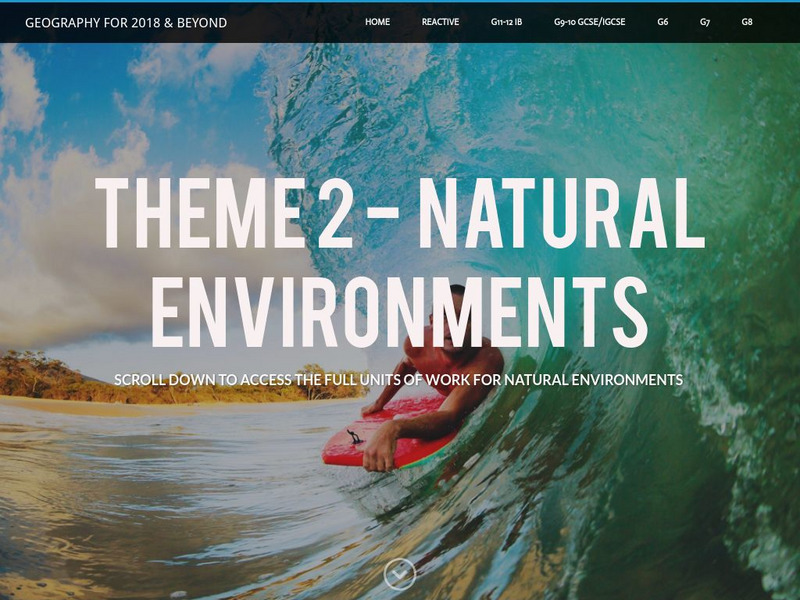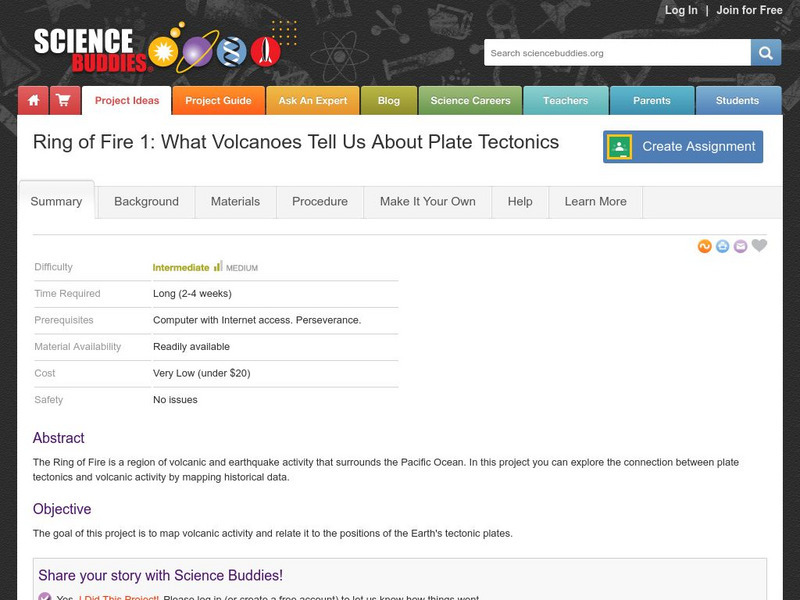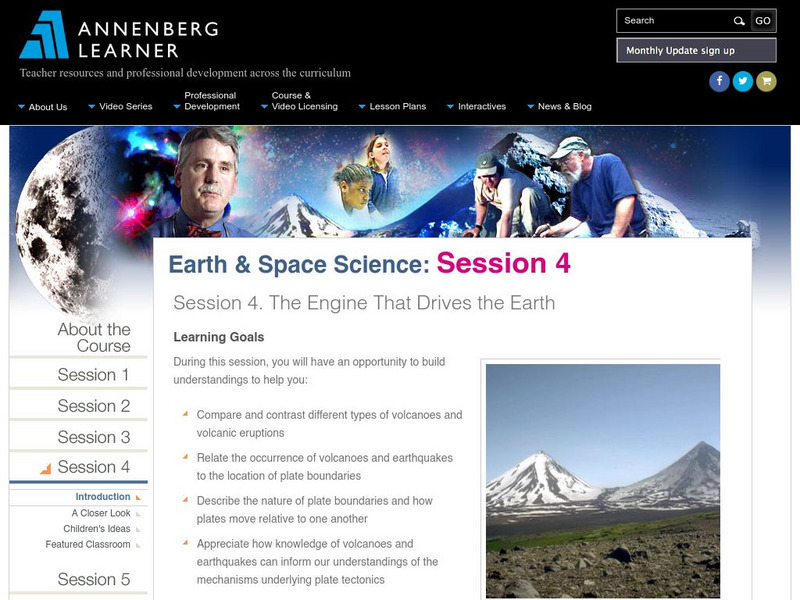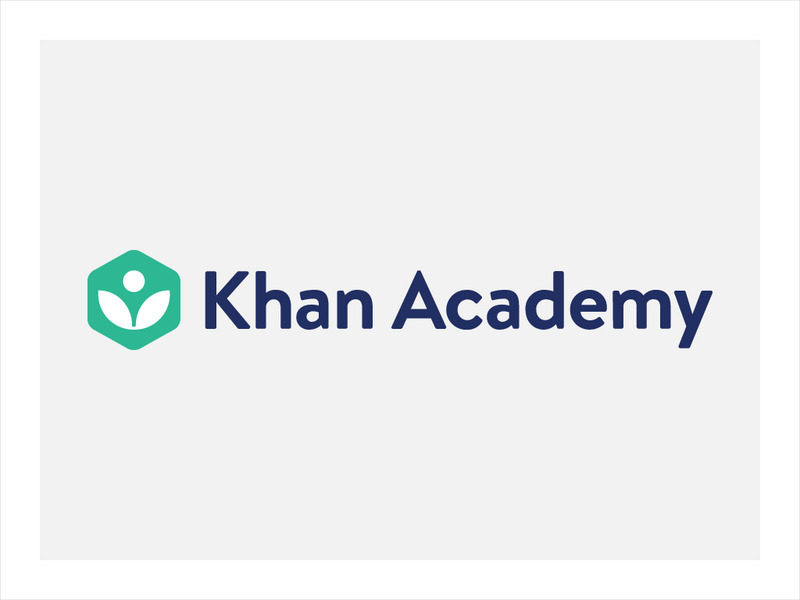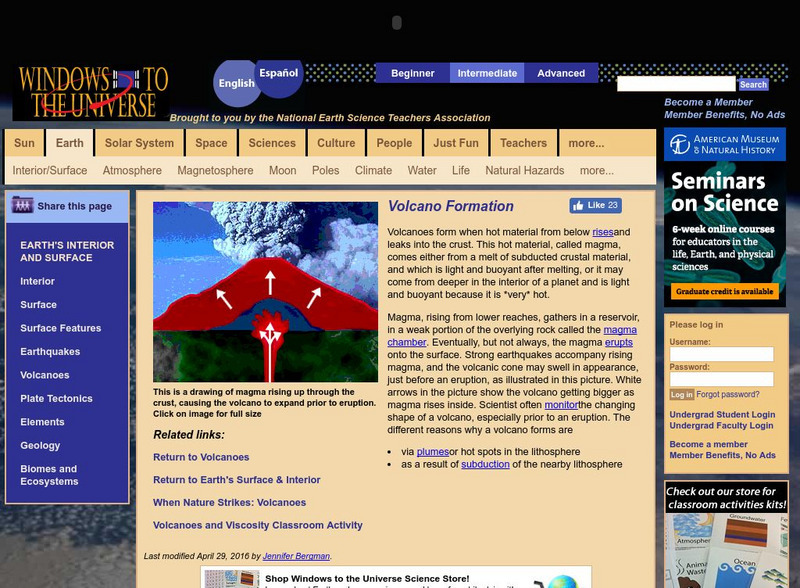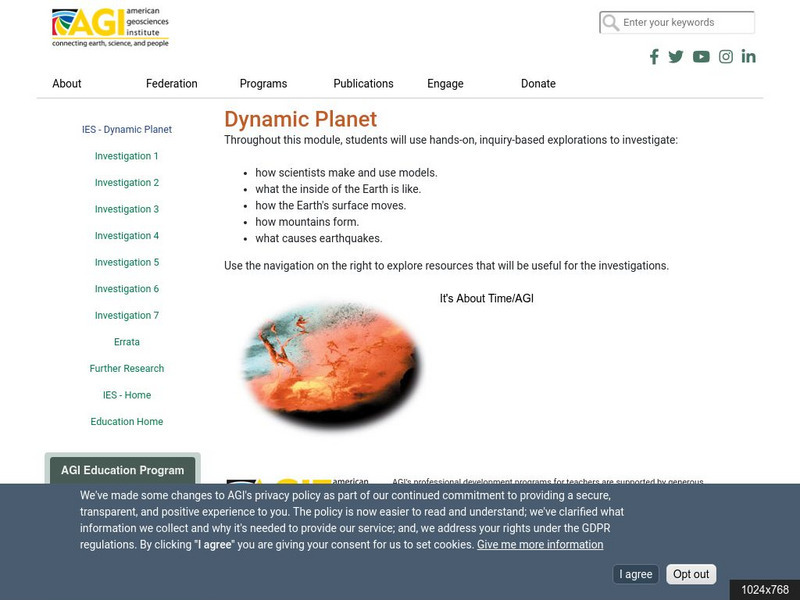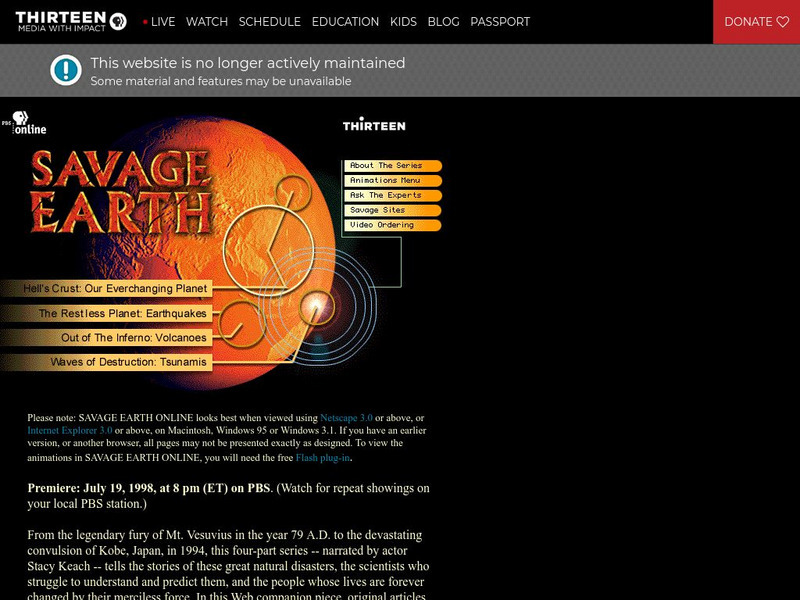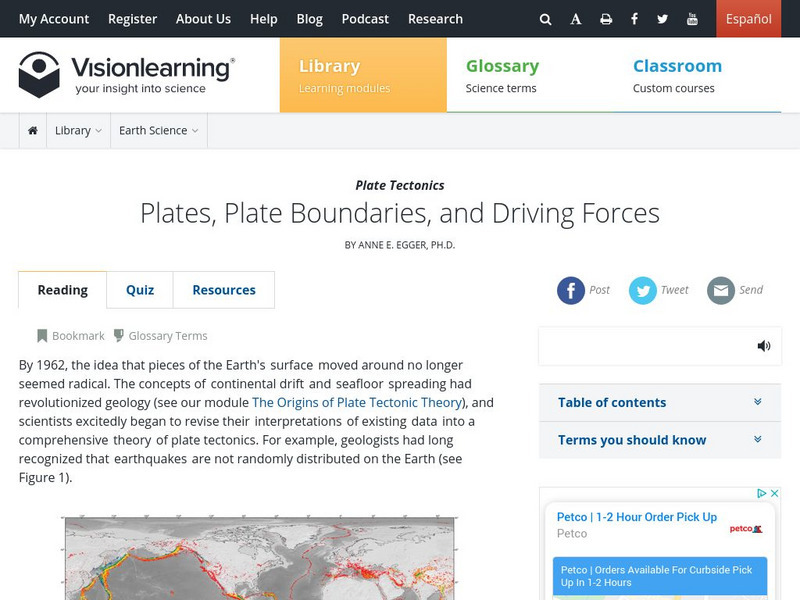Hi, what do you want to do?
E-learning for Kids
E Learning for Kids: Madagascar: What Are Tectonic Plates and How Are They Moving?
This lesson teaches students about tectonic plates, plate boundaries, and their role in earthquakes and volcanoes.
Geographypods
Geographypods: Theme 2: Natural Environments
A rich collection of highly engaging learning modules on topics related to the natural environment. Covers four main areas - plate tectonics, forms and processes, weather and climate, and rainforest and desert. Within each of these,...
ClassFlow
Class Flow: Earthquakes & Volcanoes
[Free Registration/Login Required] This flipchart shows diagrams of plate tectonics and how earthquakes and volcanoes are formed. Activotes are needed to answer several questions.
US Geological Survey
Usgs: Yellowstone Volcano Observatory
Yellowstone Volcano Observatory is an instrument-based monitoring program designed for observing volcanic and earthquake activity in the Yellowstone National Park region. This website provides information about its geology, history,...
Science Buddies
Science Buddies: Ring of Fire 1: What Volcanoes Tell Us About Plate Tectonics
The Ring of Fire is a region of volcanic and earthquake activity that surrounds the Pacific Ocean. In this project you can explore the connection between plate tectonics and volcanic activity by mapping historical data.
Annenberg Foundation
Annenberg Learner: Earth and Space Science: The Engine That Drives the Earth
Material to begin an exploration of volcanoes, earthquakes, and plate tectonics. An hour-long video is accompanied by learning goals, an outline and overview, details on volcano types, plate boundaries, and "hot spots," and ideas for...
NASA
Nasa Earth Observatory: Putting Earthquakes in Their Place
Discover the location of faults by viewing a schematic Global Tectonic Activity Map. View the location of different types of faults, active spreading centers and volcanoes
US Geological Survey
Usgs: Volcanic Hazards, Features, and Phenomena
Site from the U.S. Geological Survey provides a brief list of volcano terminology including descriptions as well as links to major menus.
Khan Academy
Khan Academy: Answers to Exploration Questions: Volcanoes
A site answering questions such as volcano type, how scientist predict eruptions, and how scientist know hot spots exist in Yellowstone National Park.
Khan Academy
Khan Academy: Answers to Exploration Questions: Earthquakes
Review these questions about Earthquakes on this site.
NASA
Nasa Earth Observatory: Natural Hazards: Volcanoes and Earthquakes
NASA's Earth Observatory offers photos showing locations of volcanic activity and earthquakes. Click on thumbnails to view large images and read about the causes and effects of these natural hazards.
US Geological Survey
Usgs: Earthquakes
The U.S. Geological Survey sponsors this site about the history of earthquakes in the United States as well as information about how earthquakes are detected and measured.
National Earth Science Teachers Association
Windows to the Universe: Volcano Formation
Explanation of the factors that result in the formation of volcanoes, some basic but helpful animations and photographs.
The Washington Post
Washington Post: Mapping America's Wicked Weather and Deadly Disasters
Features data collection for natural disasters and maps the trends giving us an idea of where disasters have a tendency to strike.
Other
Digital Library for Earth System Education: Teaching Box: Plate Tectonics
A suite of lessons focusing on finding the fossil evidence for lithospheric plate tectonics. Inquiry-based exploration of plate tectonics evidence includes fossil distribution, earthquakes, and volcanoes.
Annenberg Foundation
Annenberg Learner: Dynamic Earth Interactives
Interactive tutorials on plate tectonics, plates and boundaries, and the Earth's structure convey the dynamism of geologic processes, such as earthquakes and volcanoes. Takes a multidimensional approach to coverage of basic geologic...
American Geosciences Institute
American Geosciences Institute: Dynamic Planet
Seven hands-on lessons module where students learn about our dynamic planet. These inquiry-based explorations investigate scientific models, earthquakes and seismic waves, Earth's interior, Earth movements, the lithosphere, plate...
PBS
Wnet: Thirteen: Savage Earth Online
PBS produced "Savage Earth," a television series about volcanoes, earthquakes, and tsunamis. Contains extensive information with great graphics.
Annenberg Foundation
Annenberg Learner: Essential Science for Teachers: Earth and Space 3
Visit an active volcano site to find out the connection between the movement of the Earth's plates and the processes deep within the Earth's interior. [58:23]
Vision Learning
Visionlearning: Earth Science: Plate Tectonics Ii: Plate Boundaries and Forces
Instructional module focusing on plate tectonics. Discussion includes plates, plate boundaries, and driving forces. Site also includes an interactive practice quiz and links relating to the topic.
US Geological Survey
Usgs: Volcano Hazards Program: Dotsero Volcanic Center
Since 2001 the USGS has been monitoring the earth's surface in Yellowstone to understand the activity of volcanoes and earthquakes. This resource recognizes the Dotsero Volcanic Center.
Scholastic
Scholastic: Study Jams! Science: Landforms, Rocks & Minerals: Earthquakes
A video and a short multiple-choice quiz on earthquakes, how they form, how they are measured, and the ways they can change the surface of the Earth.
CommonLit
Common Lit: Text Sets: Nature and Conservation
Learn about how the natural world interacts with itself and how people impact the planet with this science-based text collection of 46 Grade-Leveled texts (3-12) on the topic of Nature and Conservation. [Free account registration...
CommonLit
Common Lit: Plate Tectonics: Moving and Shaking
A learning module that begins with "Plate Tectonics: Moving and Shaking," accompanied by guided reading questions, assessment questions, and discussion questions. The text can be printed as a PDF or assigned online through free teacher...






